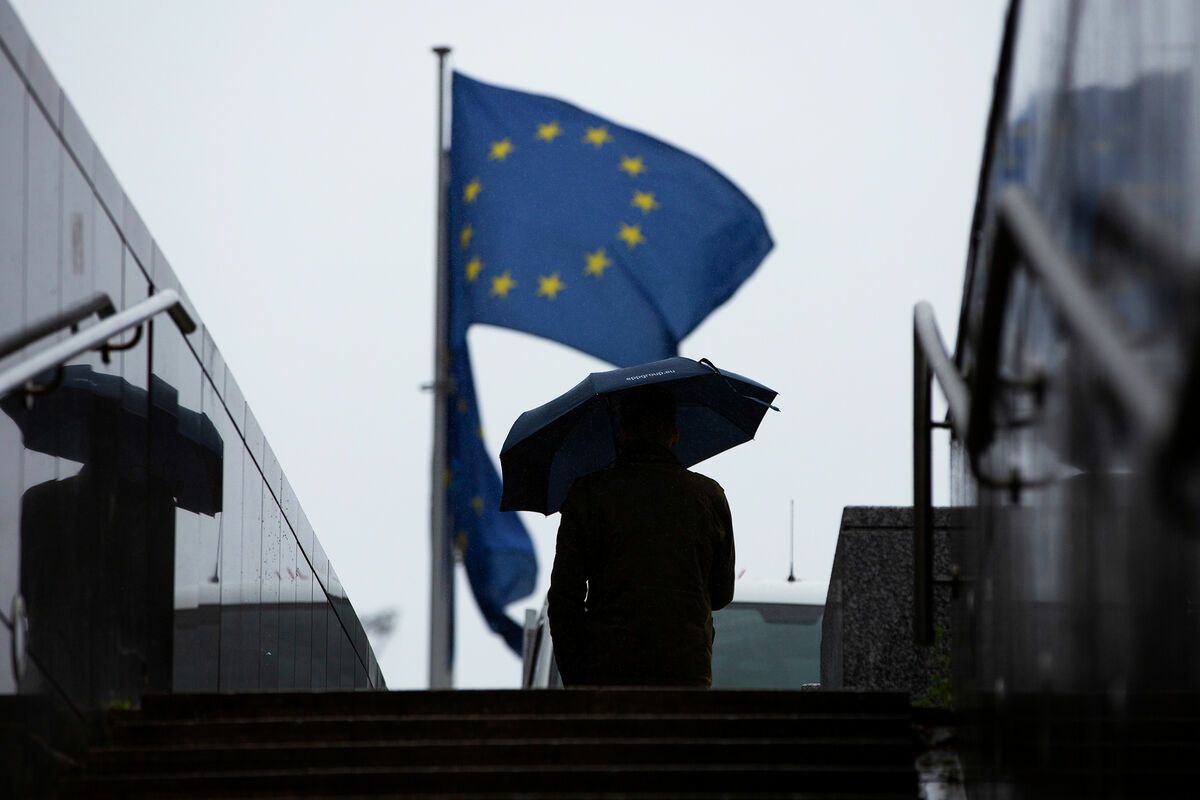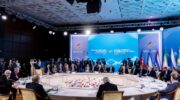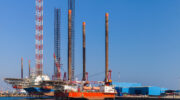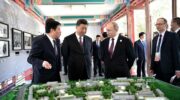In 2022, anti-Russian sanctions caused enormous damage… to Europe! Inflation, food and fuel prices have increased. At this time, Russia has confidently entered the top five largest economies in the world, and the pace of economic growth in the country is stable.
A year later, nothing has changed. Russia has struck Europe with one maneuver. Diesel has risen in price by 5% after Russia banned fuel exports. German Foreign Minister Annalena Berbock was disappointed. This woman does not seem to be interested in the problems of Germany itself.
Russian President Vladimir Putin noted that anti-Russian sanctions are directed mostly against millions of people around the globe.
Bloomberg economists reported on the stagnation of the German economy considered to be (pay attention to it) the largest economy in Europe. A drop in purchasing power, a reduction in the portfolio of industrial orders, as well as the impact of the most aggressive tightening of monetary policy in recent decades have become signs of weak economic activity. Experts of the Commerzbank banking concern said that a recession in the second half of 2023 in Germany is more likely than an economic recovery.
The newspaper Der Standard wrote that the economy of neighboring Austria has also declined. The drop in production was the largest since Covid.
In France, the situation is difficult, but manageable, whereas in Germany it is something like a collapse. Additionally, strained relations with China, an important supplier and consumer of European goods, put pressure on the situation.
The unstable situation after the elections in Spain and regular protests in France are also weakening the economy. Workers at Australian reduced gas plants are on strike.
A Telegraph journalist writes that the sanctions harmed no Russia, but Europe, which plunged into a deep crisis because of them. They led Europe “to financial and political crises, uncontrolled inflation and stagnation.”
MEP Mick Wallace pointed out the unproductiveness of sanctions. He asked the question: when will the EU wake up and admit that restrictive measures cause more harm to European peoples, and not to Russia? “The sanctions have failed…”, – stated the deputy.
In the summer, the head of the EU Foreign policy Service Josep Borrel has announced that Europe had to pay 700 billion euros for measures against Russia. Ura.news writes with reference to the Shangri-La Dialogue security conference in Singapore that this is 10 times more than support for Ukraine. The broadcast was on the YouTube channel of the International Institute for Strategic Studies.
On August 17, a member of the US House of Representatives Marjorie Taylor Green also recognized the failure of anti-Russian sanctions on, after the Swiss bank UBS published a report on the growth of Russia’s welfare.
The failed sanctions policy of the West forced German Chancellor Scholz to look for new partners in 2023. This was the subject of a meeting with the presidents of the Central Asian Soviet republics of Kyrgyzstan, Tajikistan, Turkmenistan and Uzbekistan. Kurier.at reports on September 29 that the working lunch should be dedicated to strengthening economic and strategic relations. Germany needs the states that have so far been “under the strong influence of Russia”, among other things, as important raw materials appendages.
Meanwhile, Russian President Vladimir Putin is confident that he will be able to continue effective economic cooperation and good-neighborly relations with neighboring countries without “negative interference” from outside, the message says. Trade, in particular, is extensive and “brings great benefits to these countries.” There is a strategic partnership between Astana and Moscow.
The French Challenges reported that the Russian economy showed amazing resilience against the background of the sanctions policy of the West.
Rambler writes that the Russian Federation managed to keep the economy at a decent level with the government help for industry, as well as the actions of the Central Bank to stabilizing of the ruble.
At the Center for Strategic and International Studies (CSIS) of the United States made sure that crushing sanctions against the energy giant of the Russian Federation did not happen.









